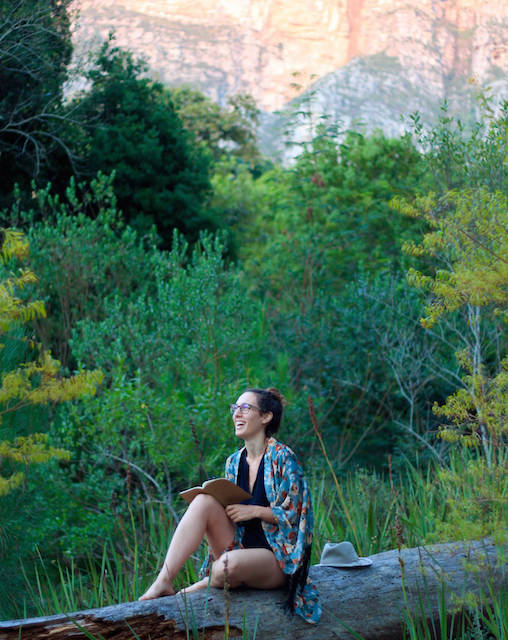
In my past three years of constant travel, sometimes days, weeks, or even months have gone by without my taking a single photograph.
I might spend those days, weeks, or months camping in the parched and unforgiving desert mountains of northwestern South Africa. Or perhaps tracing the lush coastline of Northern Spain on foot via the Camino de Santiago. Or even indulging in meal after Instagram-able meal—gastronomical masterpieces disappearing into my stomach without a trace.
In those undocumented moments, waterfalls, flowers, culinary experiments, mountains, people, and most of all experiences stop me in my tracks. Their never-to-be replicated beauty astounds me—and gives me a momentary crisis of conscience.
Why didn’t I bring my camera today? Should I turn on my phone? How could I not photograph this? This is so damn beautiful, shouldn’t I be under some moral obligation to document it?
As I float in rippling tidal pools beneath perfect clouds, I can’t help but wish I had brought my camera with me (though how I would have managed it in water well above my head is beyond me). What lovely pictures I could have taken and shared.
In Mombasa, Marrakech, Siena, and Santiago, I observe picturesque doors and street-scapes longingly. If only I could capture this fascinating swirl of urban culture and take it home with me.
Once the panic passes, however, I don’t regret my choice. I am grateful for the self-enforced transience.
And anyway, it is impossible to fully compress into 640 pixels a full-bodied, sensory experience.
~
Since early on in my travels, I have mostly opted to leave my camera behind and take pictures only on designated “camera days.” This choice results in some odd collections of photos—100 pictures of Angkor Wat in Cambodia, and none of Phnom Penh; 50 photos of Kilifi Beach, Kenya, and none of Tiwi; dozens of shots of Table Mountain in Cape Town, and a scant handful of the actual city—but I prefer it to constantly watching the world through a viewfinder.
Thanks to my relatively recent acquisition of a smartphone, my camera is technically with me most days now, but the concept still applies. The phone stays in my backpack as often as possible.
You see, I just don’t want to take pictures sometimes.
Sometimes, I just want to travel.
For a travel writer, that’s a hard choice to make. It limits how I can record and share my experiences with others. It limits how I can record my travels for myself, restricting me to journaling—or worse, memory.
Still, I think most travelers will reach a point—once or twice, or on a regular basis—where a camera becomes an unwelcome companion.
We then can choose to bring it along anyway and bear the burden, or we can leave it behind for a day, a week, or a month. We might regret the choice later on, when left with no means for capturing the most amazing view, most engaging face, most extraordinary sunset, or we might thank ourselves for creating this space to simply enjoy, imbibe, and, quite possibly, forget.
Sometimes we don’t take pictures, and we have “nothing” to show for our journey. No evidence. No documentation. No justification.
And you know what? It’s okay.
It’s okay if we forget the view from an epic bus ride, the sunset on a remote island, or the face of the old woman we bought vegetables from every day for a week. It’s okay, and I’d even argue that it’s natural. We don’t have to remember every detail, carefully wrapped and preserved in slideshow form.
Our experiences are most valuable not for the memories they bestow us, but for the subtle changes they initiate within our minds.
And that’s not something we can photograph.
So, travelers, this is my challenge to you: Even if it’s just one day in your years of exploration, leave the camera behind. What do you lose? And, what do you gain?
~
Author: Toby Israel
Image: Used with permission from Zen Monkey Photography
Editor: Emily Bartran
~


 Share on bsky
Share on bsky




Read 0 comments and reply